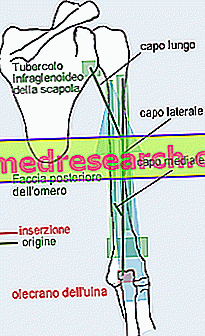Generality
The Plank (or Planck) diet is a sudden and high-protein weight loss strategy that takes its name from Marx Planck.

To be honest, there is no correlation between the well-known character and the Plank diet; in fact, the "Marx Planck Society" (German public body of scientific research) has denied any common thread between Marx Plank's projects and the objectives of the diet in question.
Therefore, there is no link between the German icon of world physics and the Plank diet slimming system. Obviously, it is impossible to understand the reason for a similar choice and, what is certain, is that the first impression on the reliability of the protocol does not seem to be the best.
The Plank diet is a weight loss system to be used only for 2 weeks, at the end of which a "weight loss" of about 9 kilograms should be concluded. After these 14 days, the weight "should" remain constant for about 3 years, thanks to the metabolic changes imposed on the body.
Approach
We now come to the fateful question: "How does the Plank diet work?"
It can be defined as a "lightning" diet, or an ultra-fast slimming technique.
We also reiterate that it is a high-protein diet, which therefore brings a significantly higher amount of protein than the recommendations (of any country) for a healthy and correct diet.
The Plank diet drastically reduces (and sometimes eliminates) some nutrients from the ordinary menu (such as sugar and oil).
No reference is made to the portions and weights of foods.
Finally, no physical motor activity protocol associated with the diet is foreseen.
Example of a Plank Diet
Below we will summarize a typical Plank diet menu.
This is a "draft" available on the website of the system in question, which is why, for the sake of greater transparency, I invite all readers to consult it to confirm the truthfulness and updating of what will be exposed.
Without distinction between: sex, age, morphological type, constitution, initial BMI or weight, the following menu is suggested:
| Breakfast | Lunch | Dinner | |
| Day 1 | QB * sugar-free coffee | 2 hard-boiled eggs and slightly salted QB spinach | QB cooked ham |
| Day 2 | Coffee without sugar QB and some bread | 1 steak with QB salad and fruit | QB cooked ham |
| Day 3 | Coffee without sugar QB and some bread | 2 boiled eggs and salad with QB tomatoes | QB cooked ham and salad |
| Day 4 | Coffee without sugar QB and some bread | 1 egg, raw carrots or boiled QB and Swiss cheese | Fruit and 1 yogurt |
| Day 5 | Carrots, lemon and coffee without sugar QB | Steamed fish and tomatoes | 1 steak with a side of salad |
| Day 6 | Tea with lemon juice | Grilled chicken | 2 boiled eggs and carrots |
| Day 7 | Tea with lemon juice | A grilled steak and fruit | Everything you want |
* QB = How much is enough
- Some ancillary indications are: to drink water as frequently and as much as possible (even more than 2 liters per day) to counteract the protein excess (attempt to safeguard kidney health).
- The diet should be followed with fidelity at least from the eighth day onwards.
It works? Contraindications
Like all high-protein diets, the Plank diet also makes you lose weight; being a slimming diet, it is certainly not an unexpected result.
Most practitioners of the Plank diet have achieved a positive result, but it would be more important to understand if this corresponds to the goal of the Plank diet: -9kg in 14 days and no weight gain for the next 3 years. Obviously, any user (conscientious) should not report any comments (if not negative, for a possible weight gain before 3 years) until the application time expires. For most, it is not so.
Scrutinizing the comments on the net, whose veracity would have to be ascertained in any case, many claim to have obtained results very similar to what was expected, therefore between 6 and 9 kg, proportionally to the rigor used in following the diet. First of all, a "more or less" 3kg on a target of 9 is definitely not a good result, since it corresponds to 33% compared to the total. This fluctuation does not indicate good applicability.
With a nutritionally balanced diet it is not possible (it would not be considered such) to lose more than 700-1000g a week, then 1.4-2.0kg in 14 days; however, this prediction is calculated on the relationship between: estimate of anthropometric characteristics, overall energy expenditure and caloric intake of the diet (the latter should not correspond to less than 70% compared to the real energy requirement). If you prefer, even though it is a slower (but also less stressful) method, it "guesses" the progression of weight loss with considerable precision and, without complications, leaves no uncertainty.
By continuing to analyze what users have written, it is already possible to observe some complaints about the maintenance potential; among other things, we must always keep in mind that not everyone has the shrewdness to communicate their negative experiences and that, alas, the lack of compliance with the diet is often perceived as a personal failure, which reduces exponentially the possibility of public comments negative.
The Plank diet promises: "no maintenance phase at the end of the diet", but it is then suggested to avoid alcohol and sugars (presumably the simple discretionary ones, such as sucrose), and to limit carbohydrates (even if we remember that even simple sugars are carbohydrates, this clarification is not clear).
The so-called "aggressiveness" of the Plank diet is to be understood as "drasticity" or "incisiveness"; whatever word is used to define it, it should discourage the most zealous consumers to use it; on the other hand, it seems to tempt those who, in spite of losing a size, would endanger their health.
With regard to this last statement, more clarity is needed. In itself, taking for granted a perfect state of health (especially of the liver and kidneys) and a level of physical activity no more than "moderate", a 14-day high-protein diet should not be too harmful for the body. It is however necessary to keep in mind that we will have to deal with: constant tendency to hypoglycemia, ketoacidosis and dehydration, nutritional deficiency of many mineral salts and vitamins, lack of dietary fiber, hunger, etc. Often, such circumstances determine: cramps, weakness, asthenia, sleep disturbance etc.
It is also necessary to keep in mind that the Plank diet, being very rich in ingredients of animal origin, could tend to increase cholesterol levels in the blood. Needless to reiterate that an excess of the latter is linked to the onset of atherosclerosis, which is why the Plank diet is to be considered unsuitable for people already predisposed to hypercholesterolemia. The Plank diet should also avoid serious diabetics, subjects with kidney disease or liver disease, hyperuricemic (or gouty), growing subjects, pregnant women and nurses. Personally, I would also add all those who are physically busy working and sportsmen.
Beyond all this, the most negative aspect concerns education and the experience lived in such a slimming process. Accepting a diet that is so strongly unbalanced means giving in to a slimming instinct that reveals too great a discomfort (nowadays quite widespread) and the will to reach a body image different from one's own at any cost; a very bad emotional condition. Moreover, being a diet that is potentially inadequate for maintenance and predisposing to the yo-yo effect, it contributes to the accumulation of negative dietary experiences that inexorably worsen self-esteem and the relationship with food.



